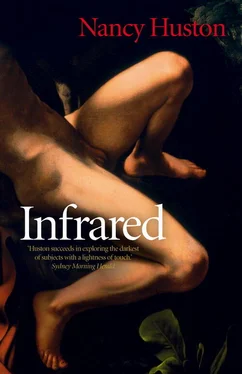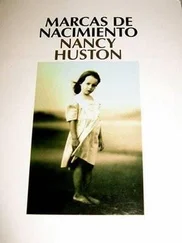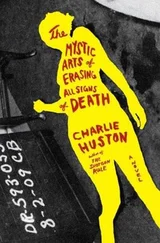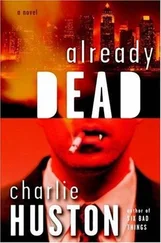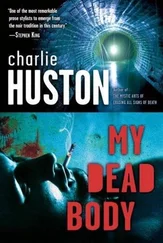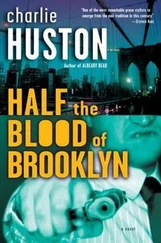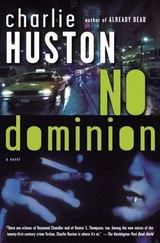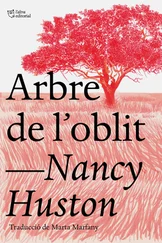Indeed, they are but a stone’s throw from the Duomo Santa Maria del Fiore, and this impressive building is none other than the Arcispedale di Santa Maria Nuova. Well, how about that! An archi-hospital!
‘I’m fine. There’s nothing wrong with me,’ mutters Simon as they move through a swinging door marked PRONTO SOCCORSO.
They’re taken in charge at once.
It has to be a dream…Memories of endless hours spent in the emergency rooms of various hospitals in Paris, surrounded by dozens of other panic-stricken parents with whimpering babies in their arms or glassy-eyed toddlers on their laps — waiting, filling out forms, waiting, more formalities, waiting, insurance papers, waiting. The smell of urine and disinfectant, Nescafé and shit, dried sweat, and despair…
Nothing of the sort here. Nothing but polite receptionists, reassuring nurses and sympathetic doctors…Within five minutes Simon is being wheeled away on a gurney for X-rays. How civilised can you get?
Aspetto Primo
In the waiting room, the two women settle calmly into armchairs.
‘We made the right decision,’ Ingrid says.
‘Sure we did.’
‘Everything will be all right now.’
‘Of course it will, Ingrid. You’ve been terrific.’
‘Me? I haven’t done a thing. You’re the one who’s handled things beautifully. But that’s only natural; you’re a much more seasoned traveller than I am.’
Silence.
Then Ingrid asks, ‘What time is your flight tomorrow?’
‘Eight a.m. I should be at the airport by seven. What about yours?’
‘Not until eleven. We have a stopover in Paris. It’s silly — we should have arranged to take the same plane.’
‘You’ll have to lend me a little money for cab fare…’
‘No problem. But we’ll come with you to the airport. It’ll mean getting up early but that’s okay, we can catch up on our sleep during the flight.’
‘That’s sweet of you. Who’s meeting you at Mirabel?’
‘David…And you? Aziz?’
‘Theoretically. That was the plan, yes…but given all that’s been happening in the meantime, I don’t know. He must be swamped…’
‘Why don’t you call him?’
‘Very funny. I don’t have a phone.’
‘Take my Visa card. Go ahead, give him a ring…If you want to, of course.’
Illogically, Rena glances at her watch. Having no choice in the matter, the watch tells her what it has been programmed to tell her. (‘Years, months and days are natural,’ Simon had explained to her when she was little, ‘but weeks, hours and minutes are man-made.’ ‘What about seconds?’ she had asked. ‘Are they woman-made?’ ‘Ha, ha, ha!’)
Cifre
She borrows Ingrid’s Visa card. Knees quaking, she walks down a long, dark corridor, at the far end of which is a payphone.
Maybe it only accepts local phone cards, whispers Subra.
You’re right, I sort of hope so…Nope, no such luck. This payphone is a whore; it takes anything and everything.
Weird, isn’t it? says Subra. No one ever suggests that, deep down, payphones enjoy their customers’ calls. No, you put your money in the slot and they do what they’ve been paid for, period.
Rena slips the Visa card into the telephone.
We’ve invented so many things, she says to herself, slowly dialling Aziz’s number. It shouldn’t be possible to take a piece of plastic decorated with letters and numerals in bas relief, press a series of metallic buttons to dial a fifteen-figure number which is stored in one’s memory along with dozens of other numbers corresponding to various facets of one’s identity (telephone, bank account, social security, licence plate, postal code, bank code, door code), then lift a black Bakelite cradle to your ear and hear, encoded and decoded by twelve hundred miles of copper wire, the voice of the person you love.
Niente
‘Aziz speaking.’
Ah. So her man answers his mobile when an unfamiliar number flashes onto the screen. Rena, no; Not Known, yes.
‘It’s me, love…’ All that comes out of her throat is a pathetic croak.
‘Hello?’
She clears her throat. ‘It’s me. It’s Rena.’
The answer to that is silence.
‘Aziz, are you okay? Are you there?’
‘I’m here, but…’
‘Listen, love, so much has happened…in France, I know… but here, too…You wouldn’t believe it. It’ll take us weeks to catch up…We’ll start tomorrow…Are you still planning to pick me up at Roissy?’
More silence. What the hell is going on?
‘It doesn’t matter,’ she babbles. ‘I can take a cab, no hassle. I mean, I’m sure you’ve got better things to do at ten a.m. I’ll have to borrow some money from Ingrid, though, because…’
‘Rena.’
‘What?’
More silence.
‘What, Aziz? Tell me. Are you mad because I couldn’t come home any soon—’
‘Rena…we’re not t-t-to…’
Oh-oh, thinks Rena. If he’s stammering, something is really wrong.
‘…gether anymore. I’ve d-d-decided not to move into the Rue des Envierges.’
‘When?’
What a stupid question: when? Aziz doesn’t answer it.
‘But…why? What’s going on? I adore you, Aziz. Living with you is the thing I care about most in the world.’
Silence.
‘It’s because I’m Jewish, is that it? Did Aicha finally convince you…’
‘No, Rena, it’s not b-b-b-because you’re Jewish…It’s because you’re nothing. See? That’s all. That’s why. B-b-b-because you’re nothing, Rena. I’m something. And just now…I have to give that something all my attention.’
‘I haven’t got the slightest idea what you’re talking about.’
‘Sorry if I’m c-c-c-causing you pain.’
The connection is cut off.
If you’re causing me pain? Sorry if you’re causing me pain? Rena repeats incredulously to herself as she walks down the long, dark corridor in the other direction. That’s hilarious. If you’re causing me pain…
Incapable of facing Ingrid right away, she stops off in the Bagni Signore. Pays no attention to the other women milling around in there. Walks straight to the farthest sink and plants herself in front of the mirror.
Tutto
Aziz’s ‘You’re nothing’ scared her so badly that she almost expects the mirror to reflect only the white tiling behind her. But no, it frames a face. She studies the face with a professional eye, trying to get behind it and see what makes it tick.
The last photos of Arbus, taken just before her suicide in July 1971, show her looking thin, tense and uncertain. She’s dressed in black leather pants, her hair is cut short and there are dark shadows under her eyes…Where did her stubborn neutrality come from? Rena suddenly wonders. Her refusal to find one thing better than another? Her blindness in the face of injustice? Arbus was interested only in the particular: each, each, each.
She said yes to everyone, Subra puts in. Just like the payphone.
Right. Accepting other people to the point of non-existence. Diane diaphanes, a transparent film that allows light to pass through it. ‘I just want to stay with my eye to the keyhole forever,’ she once wrote to a friend.
What had that Maisie seen? What had she endured as a little girl, growing up in New York in that wealthy Jewish family whose privileges she detested? What evil had she been forced to construe as good, so irrevocably that she would spend the rest of her life blurring the nuances between the two?
I, too, Aziz, am something.
She bends over the sink and splashes her face with cold water, scattering droplets in all directions.
Читать дальше
